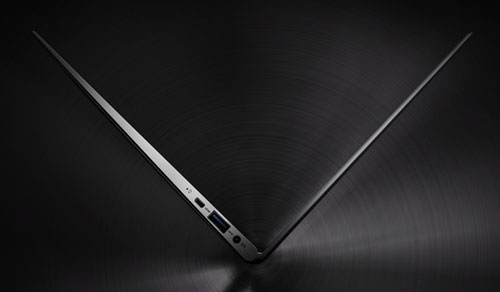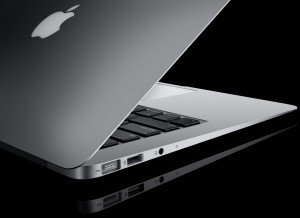
If 2011 was the year of the tablet computer, 2012 looks set to be the year of the Ultrabook, chipmaker Intel’s term for next-generation, ultra-thin and portable laptops running Windows. But are these machines a desperate reaction from a PC industry trying to catch up to Apple with its game-changing MacBook Air?
As with tablets and the iPad, Apple arguably started the trend to mass-market ultra-light laptops with the Air. From Lenovo to Acer and from Samsung to Asus, this year’s giant Consumer Electronics Show in Las Vegas is filled with PC makers’ latest Ultrabook offerings.
But rumblings from analysts on the show floor suggest they’re just playing catch-up with Apple and none of their offerings stands out particularly from the Air.
If the efforts by PC makers to jump on the ultraportable bandwagon is focused too narrowly they could fail, says analyst Jack Gold of J Gold Associates, who reckons Ultrabooks should be seen to represent a much bigger strategic vision and investment that could “revolutionise” the notebook market.
Gold says the PC market, and especially the notebook segment, has grown stale in recent years. “Indeed, most innovation in computing has been directed at the myriad mobile devices.”
Though some pundits speculate that the world has moved to a post-PC era, with consumers increasingly using smartphones and tablets as their primary computing platforms, Gold believes the PC is far from dead.

He says there remain many benefits to PCs and expects them to retain their predominance in both the business and consumer spaces. However, it’s up to Intel and its partners like Microsoft, notebook and application vendors, as well as user interface specialists to “stimulate and regenerate notebook interest”.
With growing demand for thin, lightweight and powerful portable PCs, Intel will only allow products that meet its strictly defined specifications to carry the Ultrabook moniker. The question is whether Intel and its partners can reinvigorate the notebook market. Gold warns that if Ultrabooks are merely MacBook Air “knock-offs”, they won’t be particularly successful.
Though they need to be thin and light, Gold says the price of the new machines will play a determining factor. He also believes Ultrabooks will evolve extensively within the next few years, particularly their processors and batteries.
The combination of more efficient chips like Ivy Bridge from Intel and increased battery efficiency should mean future Ultrabooks are able to achieve eight or even 10 hours of battery life, “even in a reduced form factors requiring smaller batteries”.
He adds that faster startup times will make Ultrabooks far more like mobile devices and expects they’ll offer better security, touch interfaces and “touch-enhanced form factors”.

“Of course, much of this functionality is dependent on the next generation of operating systems powering these systems,” Gold says. “Microsoft has not yet specified Windows 8 availability and the functions it will allow. But we expect a version of Windows 8 that is optimised for this new form factor to be included in the general release of Windows 8 later this year, combining features of [its new] Metro user interface, enhanced boot and recover from standby capabilities and specialised functions and drivers for the new Ultrabooks.”
He says the success of Ultrabooks will also be dependent on how PC makers are able to differentiate and fine-tune their offerings for specific consumer classes like business users, portable gamers, media creators and consumers.
Though a number of first-generation Ultrabooks are emerging in Las Vegas this week, Gold expects the “real” Ultrabooks will only emerge later this year with new chips, new operating systems and new user functionality and performance.
He also expects a range of lower-end Ultrabooks priced to compete with the high end of the traditional laptop PC market before the end of the year. “That is when the true value of the Ultrabook devices will be judged.”
He expects a variety of “uniquely derived form factors” in the Ultrabook market, including some with tablet-like screens that can be flipped or rotated, expanded connectivity options and the like, and suggests these designs could help prevent Ultrabooks from becoming regarded simply as MacBook Air knock-offs.
“The Ultrabook is not so much a new form factor as it is an evolution of current notebooks with new features driven by new chip and operating system technology heavily influenced or driven by the appeal of the tablet form factor and smartphone devices,” says Gold.
Ultrabooks may, in fact, “revolutionise” the notebook market and Gold expects them to capture 15%-25% of notebook sales by 2014-2015. “[Ultrabooks] will have a moderating effect on the market share captured by tablet computers and the consequential displacement of PC sales.” — Craig Wilson, TechCentral
- Subscribe to our free daily newsletter
- Follow us on Twitter or on Google+ or on Facebook
- Visit our sister website, SportsCentral (still in beta)

